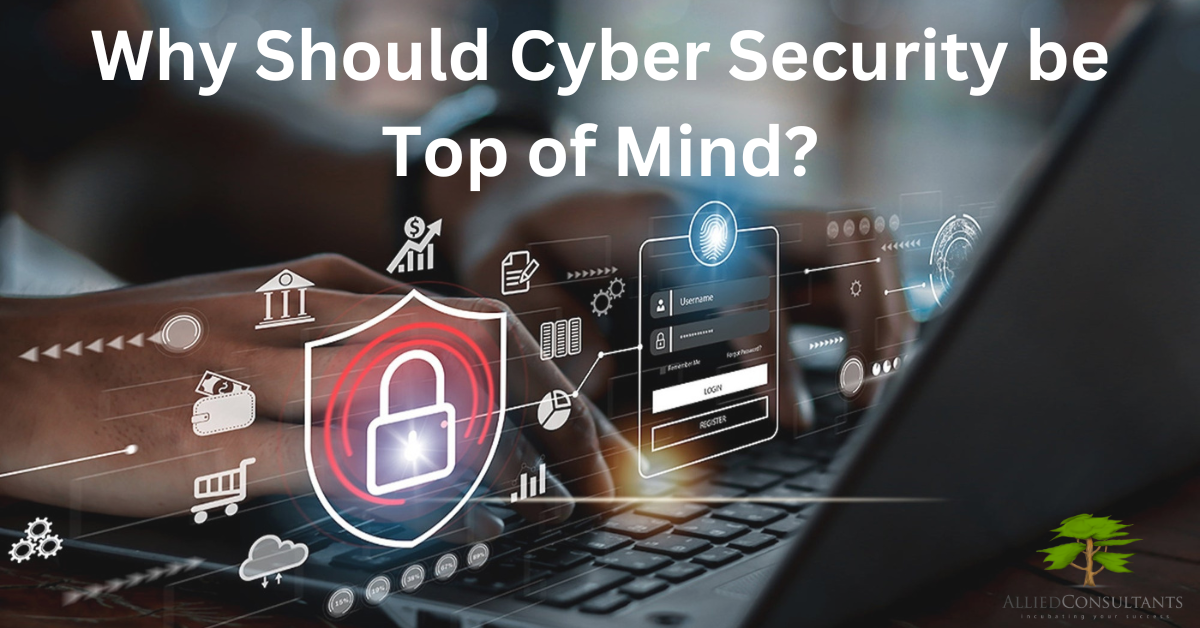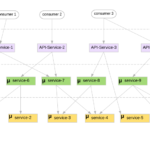Why Should Cybersecurity Be Top Of Mind In 2023 & Beyond?
In today’s digital age, cybersecurity is more important than ever before. Cyberattacks pose a real and pressing concern as we live more of our lives online and share sensitive data across various platforms. Looking ahead to 2023, cybersecurity should be top of mind for individuals, businesses, and governments alike. In this blog, we’ll explore why cybersecurity is so important and the steps that can be taken to mitigate cyber threats.
Enterprise-level cyber attacks have significantly increased globally over the past year, with estimates indicating approximately 500 million attacks worldwide. Hackers successfully breached entities more than once in a significant proportion of these attacks, with 60% experiencing multiple breaches, as opposed to 16% experiencing a single breach.
Moreover, recent reports show that in September 2022, hackers successfully breached and compromised 35 million files, targeting companies’ most valuable assets, such as sensitive files and data, commonly referred to as “crown jewels.”
The number of breaches caused by ransomware has been on the rise, with a significant increase of 41% reported in 2022. The cost of these breaches has also been increasing, with attackers requesting a higher amount. Further, in 2021, the average amount requested per attack was over $800,000, compared to $500 in 2016.
The total cost to companies for recovery efforts has also increased, averaging $1.4 million. Data breaches also target small businesses, with 43% of these attacks affecting them. Within six months of the attack, 60% of these businesses filed for bankruptcy.
Why Is Cybersecurity Important?
Cybersecurity is crucial for protecting our personal information. In today’s world, we rely on technology for everything from banking to healthcare. If we don’t implement proper security measures, various platforms can compromise our personal data as it is shared. Cybercriminals can use stolen information to commit identity theft, fraud, and other crimes. By prioritizing cybersecurity, we can protect and secure our personal information.
Cybersecurity is essential for businesses of all sizes. A data breach can have severe consequences for a business, including financial losses, damage to reputation, and loss of customer trust. According to a recent study, a business’s average data breach cost is $3.86 million. Small businesses are particularly vulnerable to cyberattacks as they often lack the resources to implement robust cybersecurity measures. By prioritizing cybersecurity, companies can protect their assets and ensure the continuity of their operations.
Moreover, it’s critical for national security. In today’s interconnected world, cyber attacks can have serious consequences for national security. Cybercriminals can target government agencies, military installations, and critical infrastructure such as power grids and water supplies. Hence, by prioritizing cybersecurity, governments can protect their citizens and ensure the stability of their economies.
What Actions Can We Take To Mitigate Cyber Threats?
Here are some steps that individuals, businesses, and governments can take:
Implement strong passwords and two-factor authentication: Passwords should be complex and unique for each account. Because passwords and codes add an extra layer of security to two-factor authentication.
Keep software updated: Software updates often include security patches to fix vulnerabilities. By keeping software up to date, you can minimize the risk of cyber attacks.
Use antivirus software: Antivirus software can detect and prevent malware from infecting your computer or device.
Back up essential data: Backing up important data can help prevent data loss in a cyber attack.
Train employees on cybersecurity best practices: Businesses should train them to recognise and prevent cyber attacks.
Engage in threat intelligence: Threat intelligence can provide insight into potential cyber threats and allow for proactive measures to be taken to prevent attacks.
Develop incident response plans: Businesses and governments should have incident response plans in place to minimize the impact of a cyber-attack.
Keep The ‘Crown Jewels’ Out Of Sight
To ensure the protection of sensitive files, data, and assets, it is crucial to encrypt access to these resources and store them in secure digital enclosures that are only visible to authorized users with valid credentials. In addition, using decoy URLs that mimic the actual files is an effective method, with all authorized access directed through these decoys.
To prevent unauthorized access, it is crucial to keep these crown jewels in sealed enclosures, preferably in proxy domains, even if credential breaches occur. Furthermore, to counter advanced attacks, encrypt and permission each artifact, and trace all data activity for forensic purposes. Thus, implementing these measures is essential to leverage all three tenets of security. Simply restricting direct access to these assets is insufficient—they must remain invisible.
Wrap Up!
Moving forward into 2023, it is clear that cybersecurity must remain at the forefront of every organization’s agenda. No organization is immune to cyberattacks due to attackers’ increasing frequency and sophistication, making breaches a significant risk. Additionally, the costs associated with such breaches, both in terms of financial losses and reputational damage, can be devastating. Sensitive data compromise can significantly impact individuals, leading to identity theft and other serious consequences.
Therefore, organizations need a comprehensive approach to cybersecurity to mitigate risks, including technology, tools, and employee awareness. Robust data encryption, firewalls, and intrusion detection systems are essential but only part of the solution. Training employees to recognize and avoid common threats, like phishing and social engineering, is also essential.
Organizations must create a secure culture where staff value safeguarding information and are encouraged to report suspicious activity. Furthermore, organizations can safeguard their assets and customers’ trust by investing in security technologies, training employees, and promoting security awareness. Cybersecurity must remain top of mind in 2023 and beyond.






